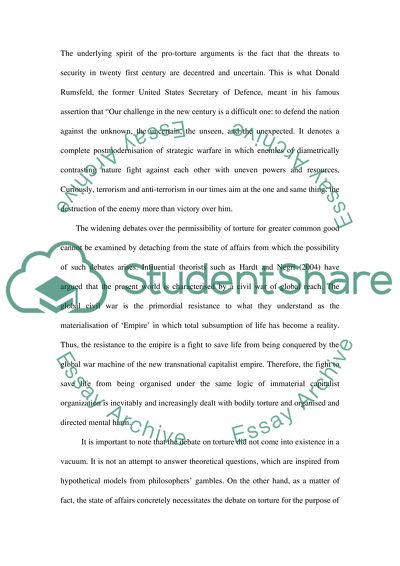Cite this document
(“Terrorism and Torture Essay Example | Topics and Well Written Essays - 4000 words”, n.d.)
Retrieved from https://studentshare.org/politics/1534820-terrorism-and-torture
Retrieved from https://studentshare.org/politics/1534820-terrorism-and-torture
(Terrorism and Torture Essay Example | Topics and Well Written Essays - 4000 Words)
https://studentshare.org/politics/1534820-terrorism-and-torture.
https://studentshare.org/politics/1534820-terrorism-and-torture.
“Terrorism and Torture Essay Example | Topics and Well Written Essays - 4000 Words”, n.d. https://studentshare.org/politics/1534820-terrorism-and-torture.


